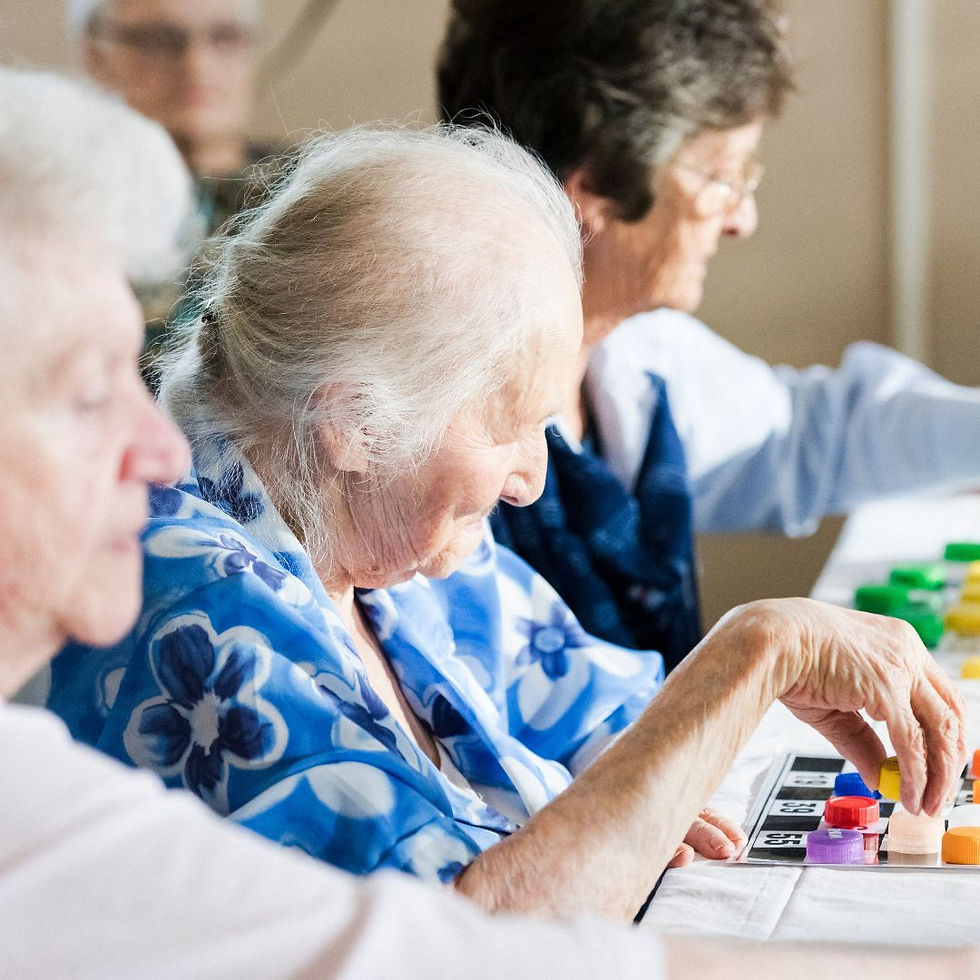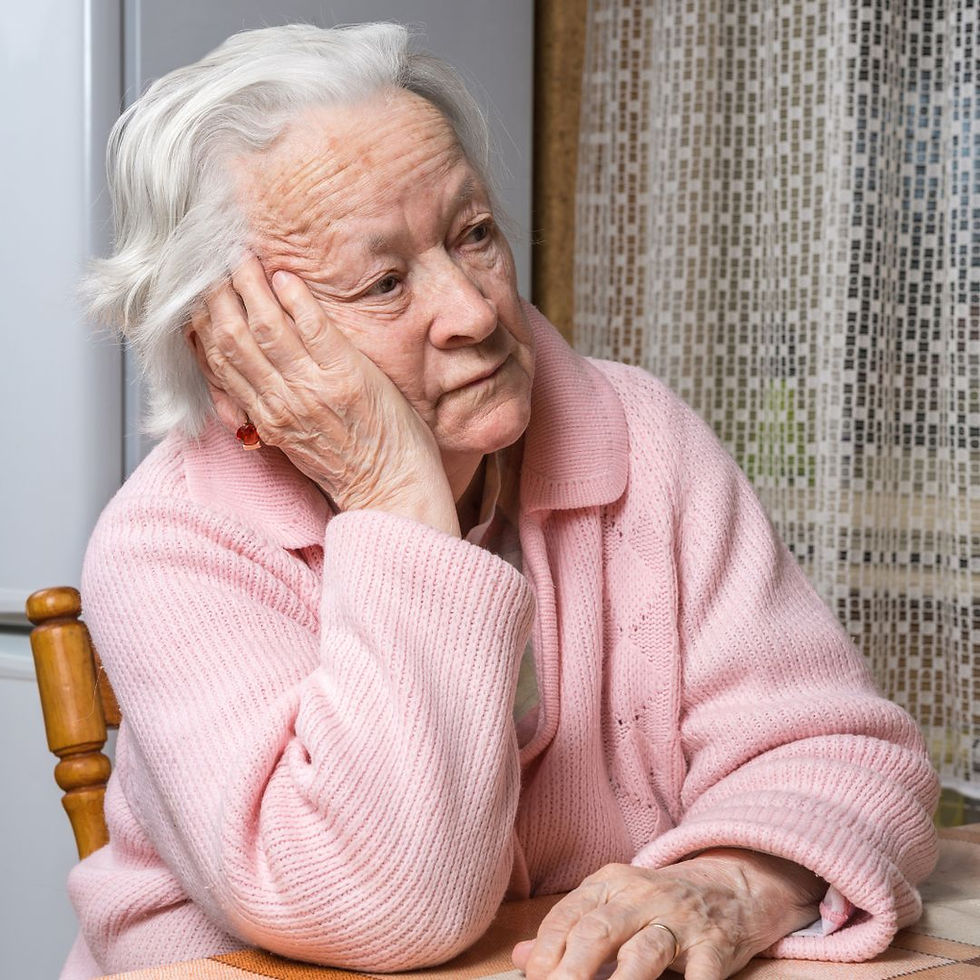Beyond Bingo: How social isolation can silently harm seniors' physical health
- Bright Copper Kettles CIC

- Jul 11, 2024
- 2 min read

As care home activity coordinators, we often focus on the mental and emotional benefits of social engagement.
However, it's crucial to recognise that a lack of social activities can have severe consequences for residents' physical health as well.
Social isolation can lead to a sedentary lifestyle and have an impact on overall wellbeing.
When residents don't participate in social activities, they often spend more time alone in their rooms.
This isolation naturally leads to less physical movement and exercise.
The human body is designed for motion, and without regular activity, it will begin to deteriorate.
Care home activities matter!
Care home activities can, in fact, reduce the amount of time staff spend on "task related care".
Consider how much time staff spend monitoring health issues and assisting residents to move from one room to another, including bathroom visits.
How many staff do you really need to support residents during mealtimes? (I'm guessing it may be more than you have available).
This can be directly related to the lack of activities support available in your care home. When seniors become socially isolated, they tend to move less.
This decrease in physical activity can lead to:
Muscle weakness and atrophy
Reduced cardiovascular health
Decreased bone density
Impaired balance and coordination
Weight gain or unhealthy weight loss
These physical changes can increase the risk of falls, fractures, and other health complications.
Social isolation and physical inactivity often create a self-reinforcing cycle:
Isolation leads to less movement
Less movement leads to decreased physical ability
Decreased physical ability leads to less participation in activities
Less participation furthers isolation
Breaking this cycle is crucial for maintaining residents' health and quality of life.
Engaging in social activities provides numerous physical benefits:
Increased movement and exercise
Improved coordination through group activities
Better nutrition through social mealtimes
Enhanced immune function due to reduced stress
Improved sleep patterns
When we work toward increasing activities and support for residents to take part in activities, residents are able to retain more independence, enabling them to feel more confident about joining in the next activity.
When you include a full schedule of purposeful, meaningful and fun care home activities, staff naturally become more available to support residents with the activities they enjoy, making your care home a much more inclusive and exciting place to live, visit and work.
Don't be shy about sharing the benefits of the work you do in your role as activity coordinator.
Print out a copy of this blog post and highlight the benefits of care home activities before putting it up in a suitable communal area.








댓글